
How to replace the rear brakes 2009-2014 Dodge RAM 1500
To replace the rear brakes on your RAM 1500 It’s easy. You will need to lift the vehicle, loosen the parking brake, remove the brake caliper as well as carry out a few other steps. You can carry out this tutorial of 17 chapters in 60 minutes. Take your ratchet and your 21 mm wrench and let’s get started!
Duration
60 minutes
Number of steps
17
Difficulty out of 5
2
Average savings
$80
Parts You Will Need
Tools You Will Need
Step-by-Step Installation
Chapter 1:
Open the brake fluid reservoir
Step 1/2
Turn off your vehicle’s ignition, set the parking brake, pull the hood release handle and open the hood.


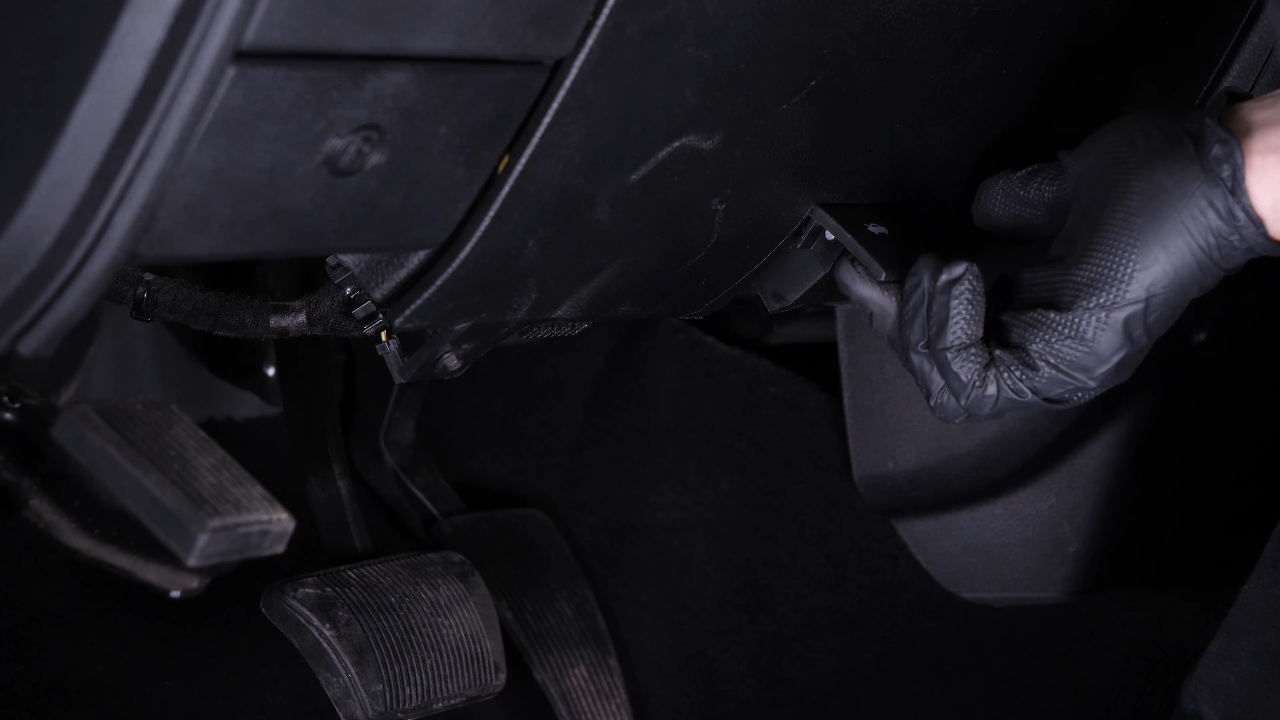

Chapter 1:
Step 2/2
Open the brake fluid reservoir.
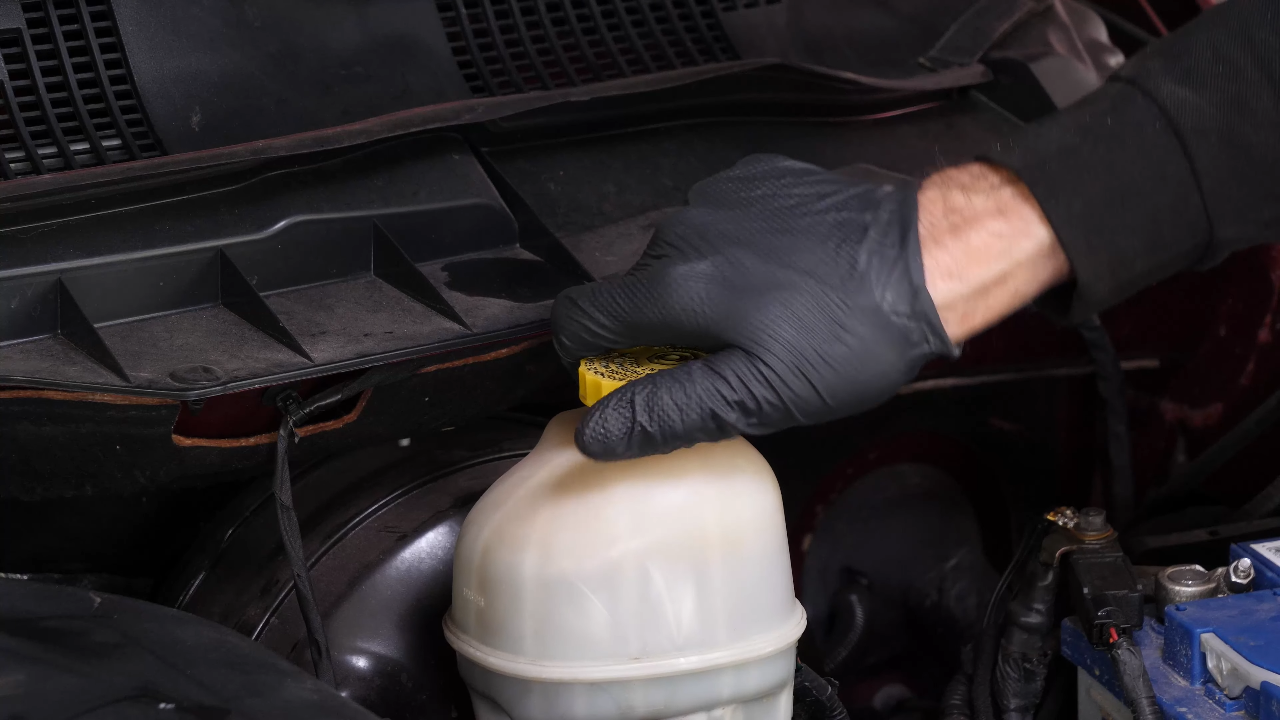

Chapter 2:
Lift the vehicle
Step 1/3
Loosen the wheel lug nuts on the rear wheels. Lift the rear of your vehicle.
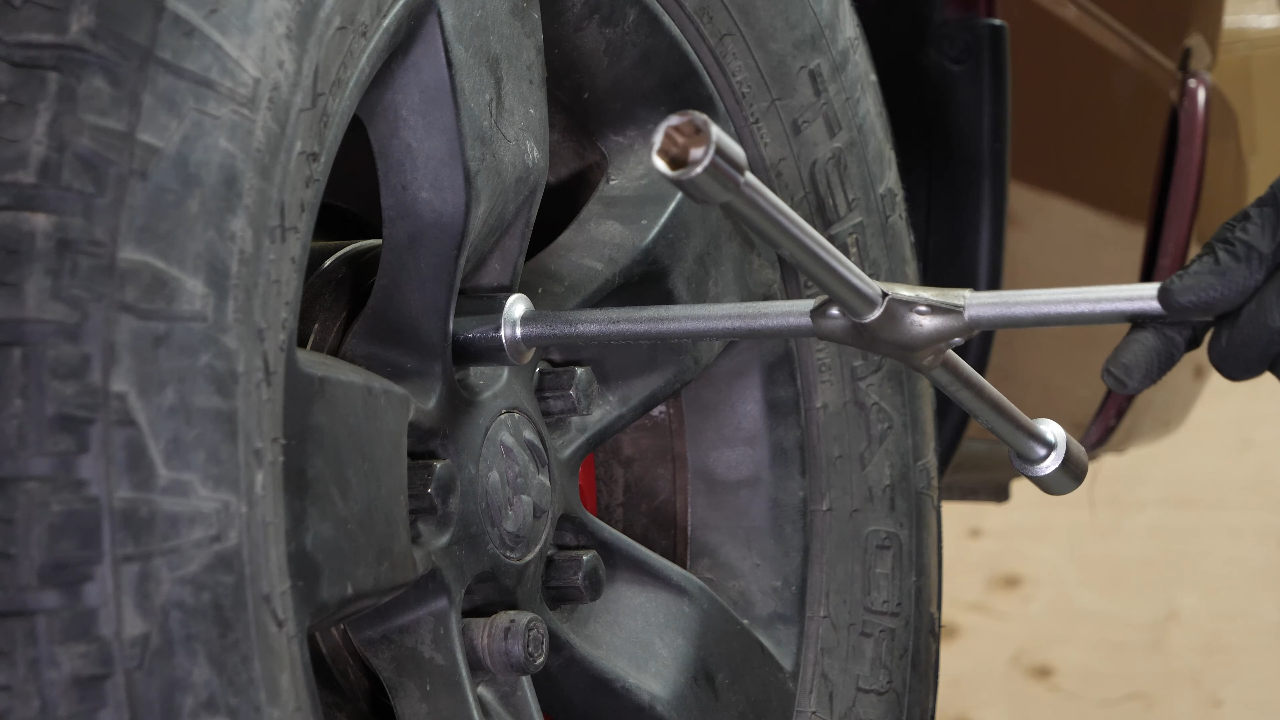
Chapter 2:
Step 2/3
We strongly suggest watching our video on ‘How to jack your RAM 1500 safely” before carrying out this step.
Chapter 2:
Step 3/3
Place the vehicle on the jack stands.
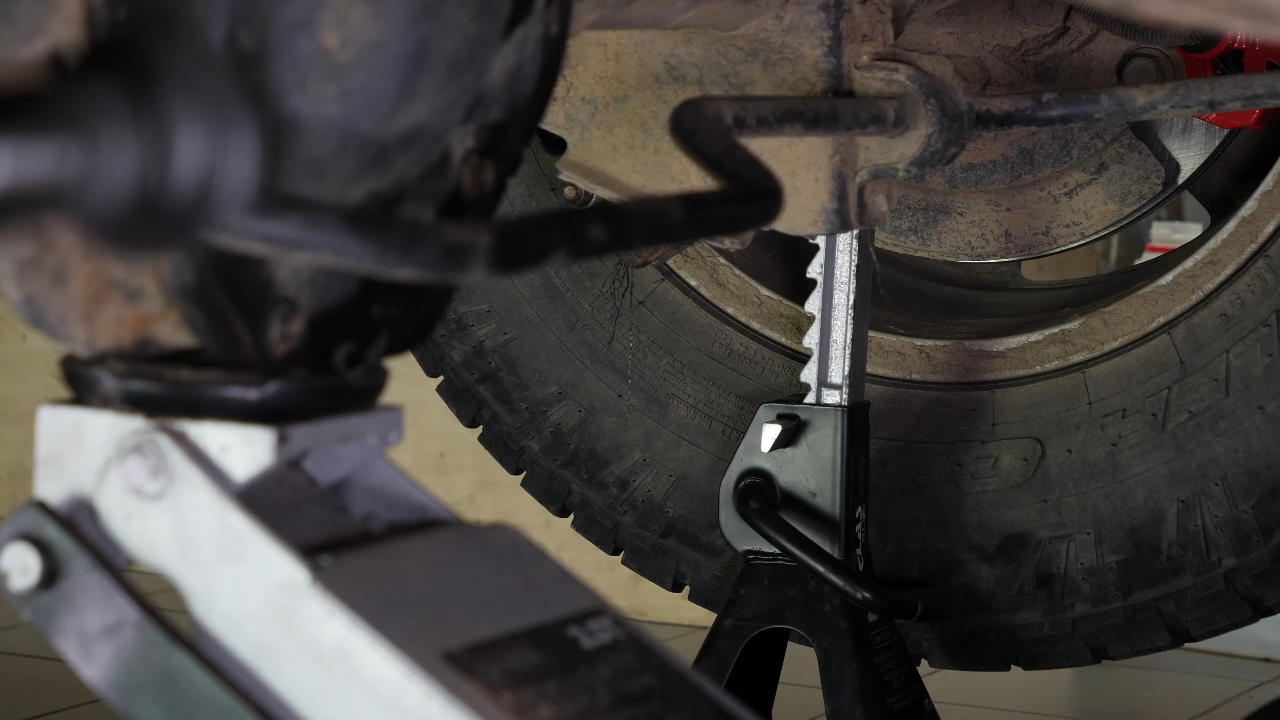
Chapter 3:
Take off the wheels
Step 1/1
In order to change the rear brake discs and brake pads on your vehicle, you will need to take off the wheels to have full access. Don’t forget to put the wheels under the vehicle!
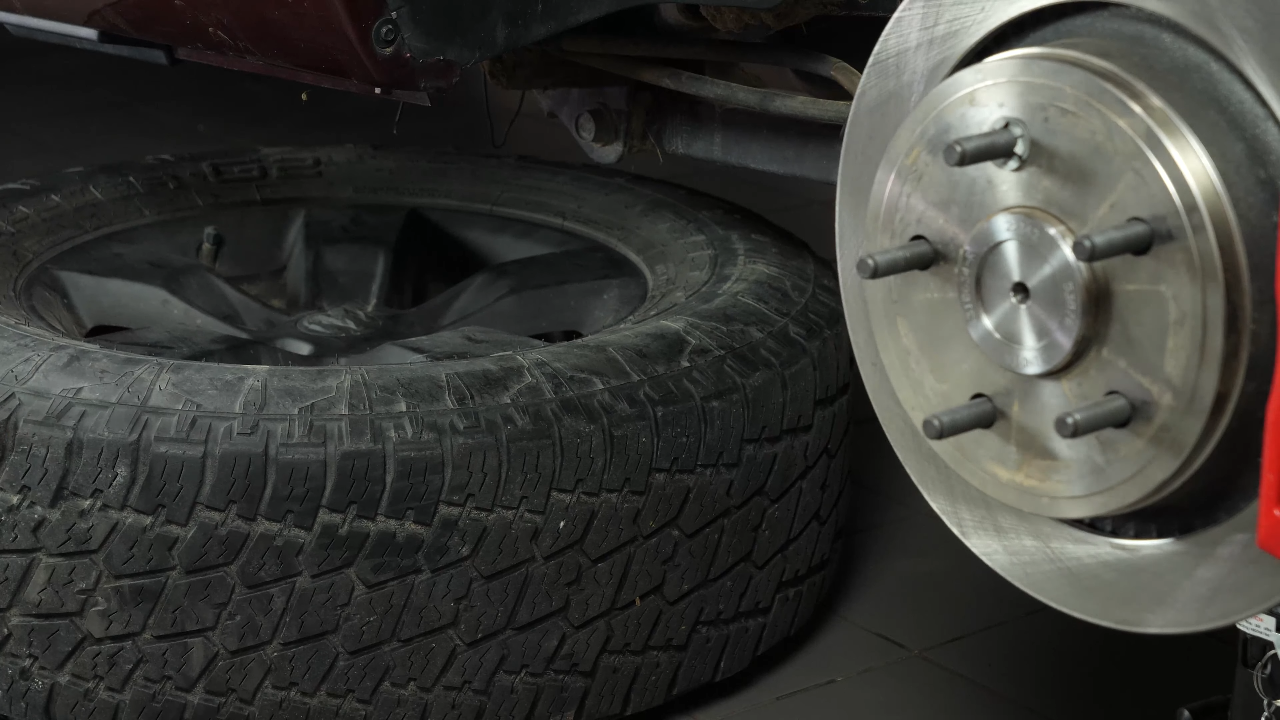
Chapter 4:
Loosen the parking brake
Step 1/2
It is now necessary to release the parking brake in order to clear the grip of the drum brake shoes on the disc.

Chapter 4:
Step 2/2
You will have to remove the shutter cover located behind the anchor plate with flathead screwdriver. You can now reach the adjustment mechanism of the brake shoes, and retract the brake shoes until the disc is free.



Chapter 5:
Retract the piston
Step 1/2
Insert a flathead screwdriver to the outer extremity of the oblong hole located on the front of the brake caliper. Lift it off using the screwdriver as a lever by pulling it towards you.
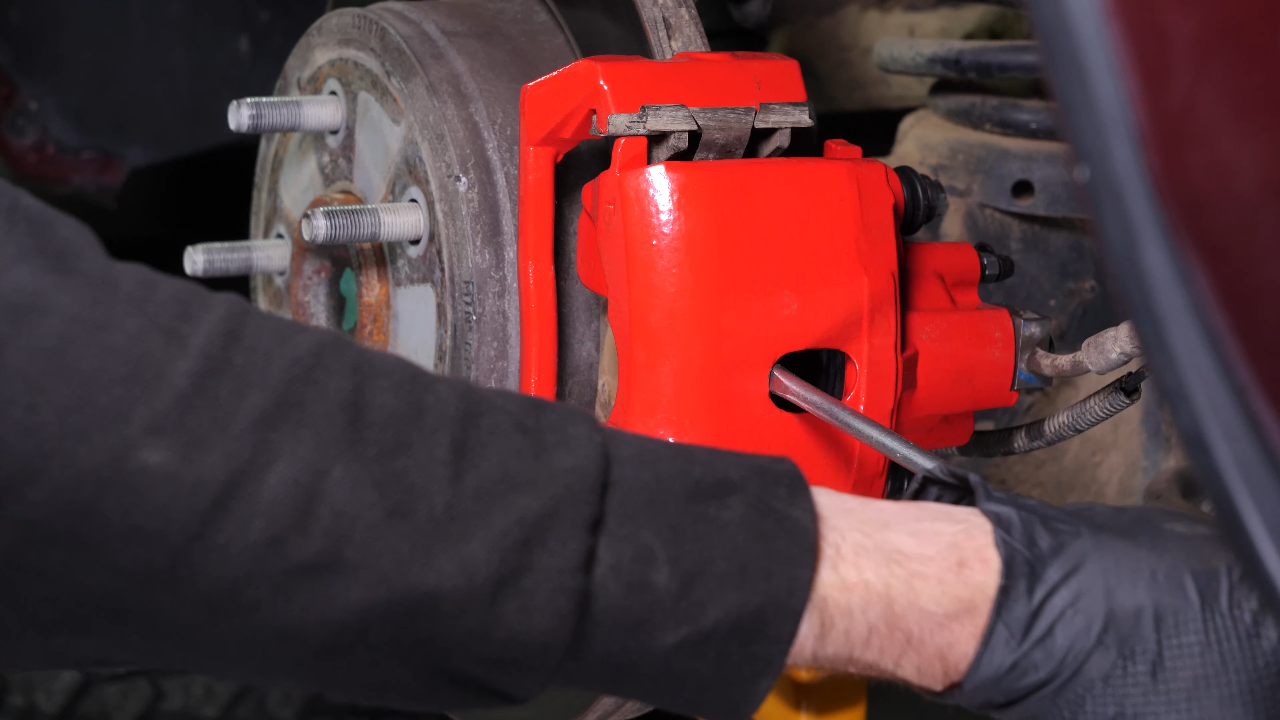
Chapter 5:
Step 2/2
This will cause the piston to retract slightly, so that the caliper can be removed more easily for the next steps.

Chapter 6:
Remove the brake caliper
Step 1/2
With a ratchet and a 13mm socket, unscrew the slide pins. Then, remove them.


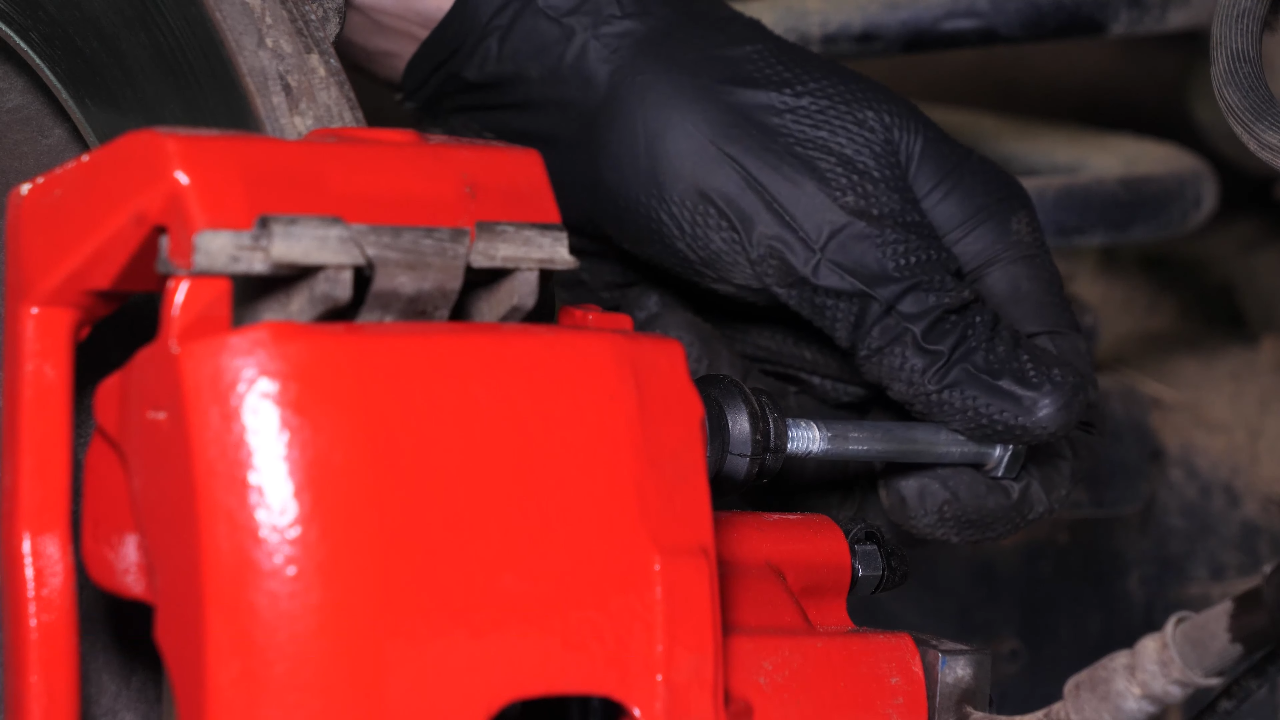
Chapter 6:
Step 2/2
Tip: attach a piece of electrical cable, or a hook, to one of the strut spring coils You can now remove the brake caliper and hand it to the previously installed hook.


Chapter 7:
Remove the brake pads
Step 1/2
Remove the brake pads by prying them out with a flathead screwdriver.



Chapter 7:
Step 2/2
Using a flat head screwdriver, remove the anti-rattle clips.
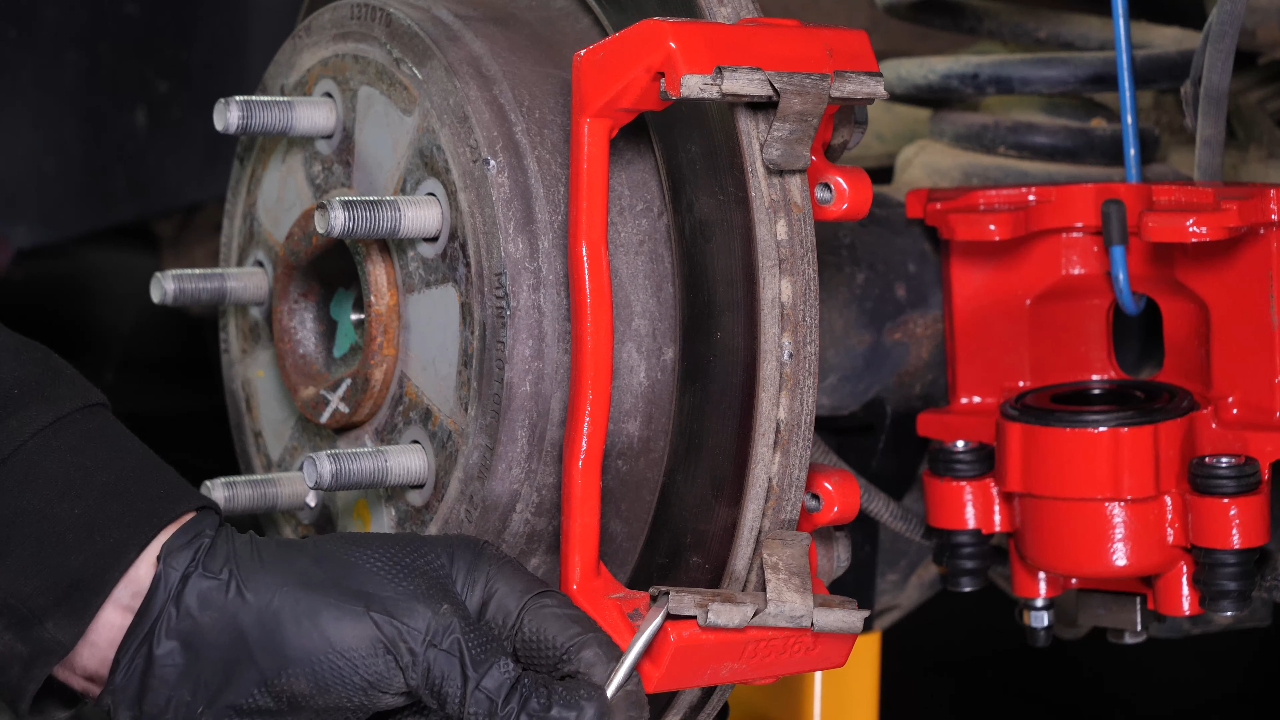
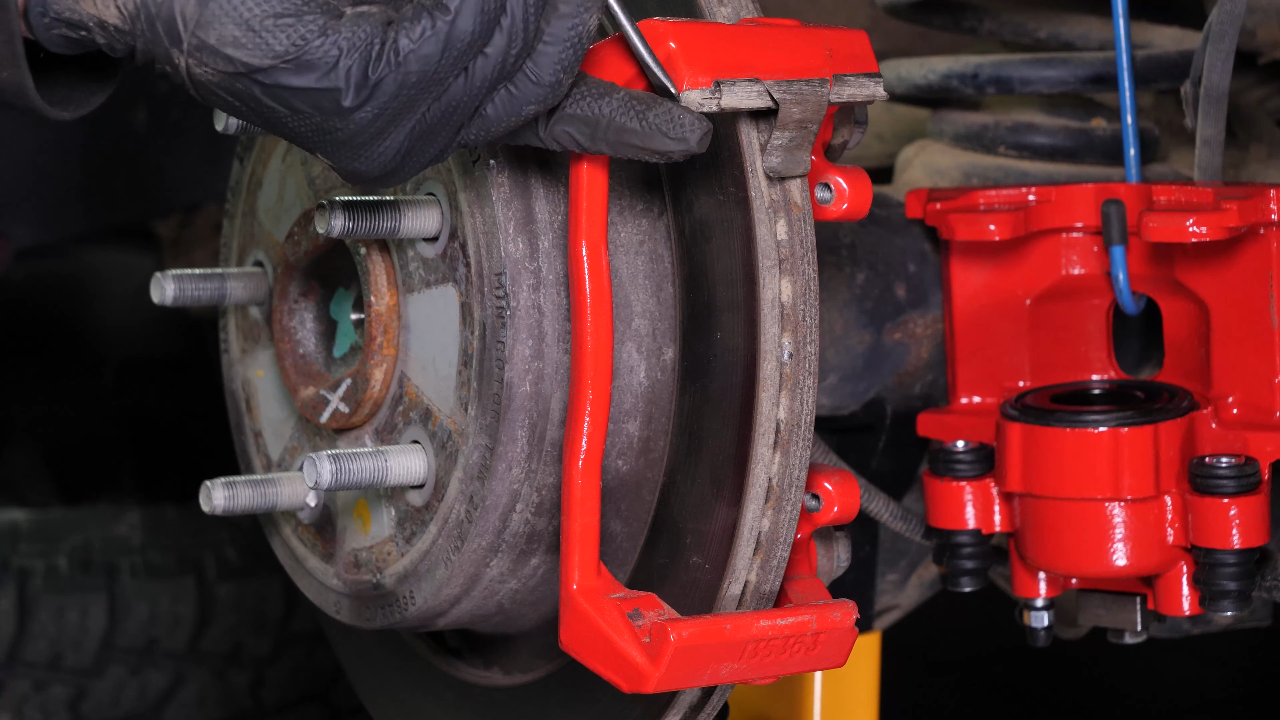
Chapter 8:
Remove the brake caliper mount
Step 1/2
Using a socket wrench and a 21mm socket, unscrew the two holding screws on the caliper mount.
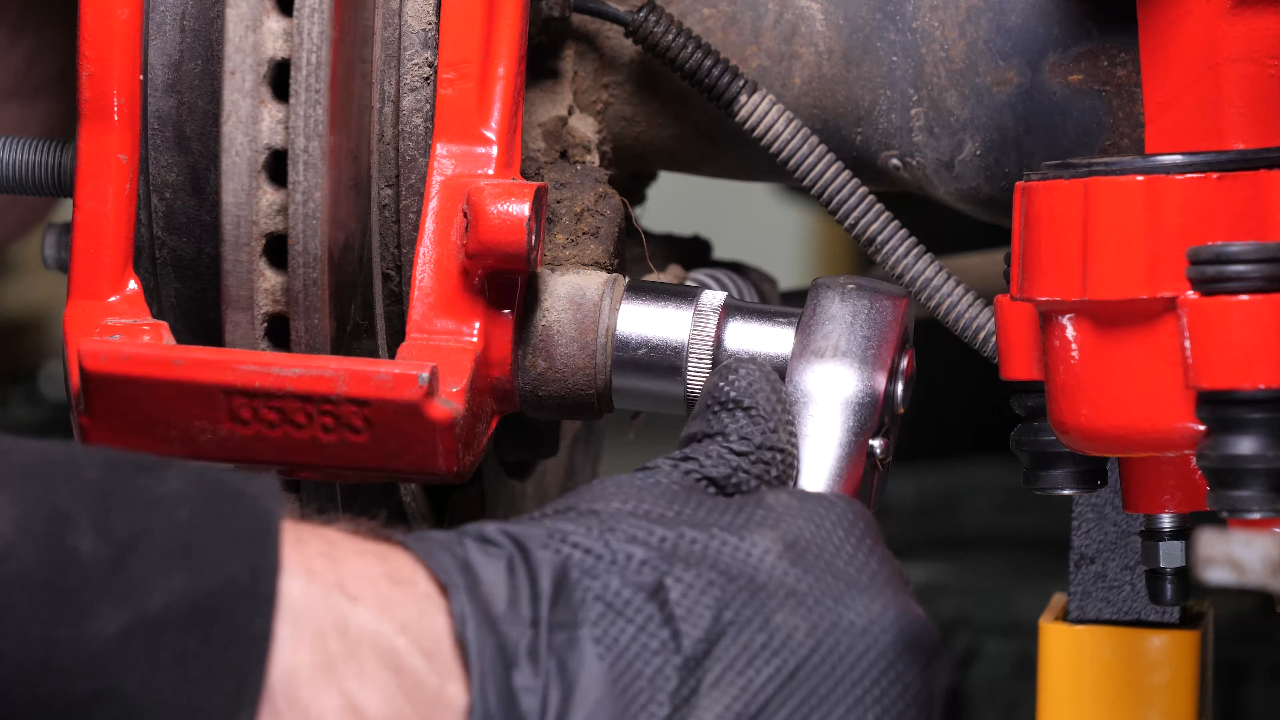
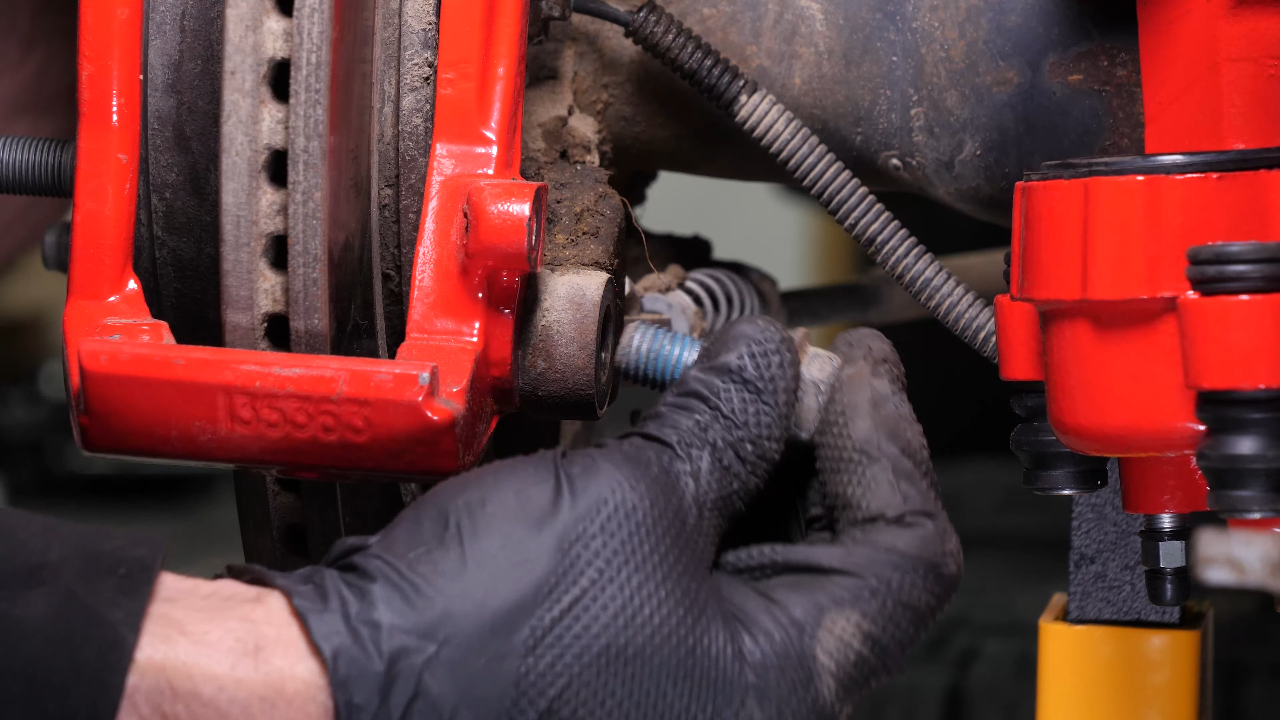
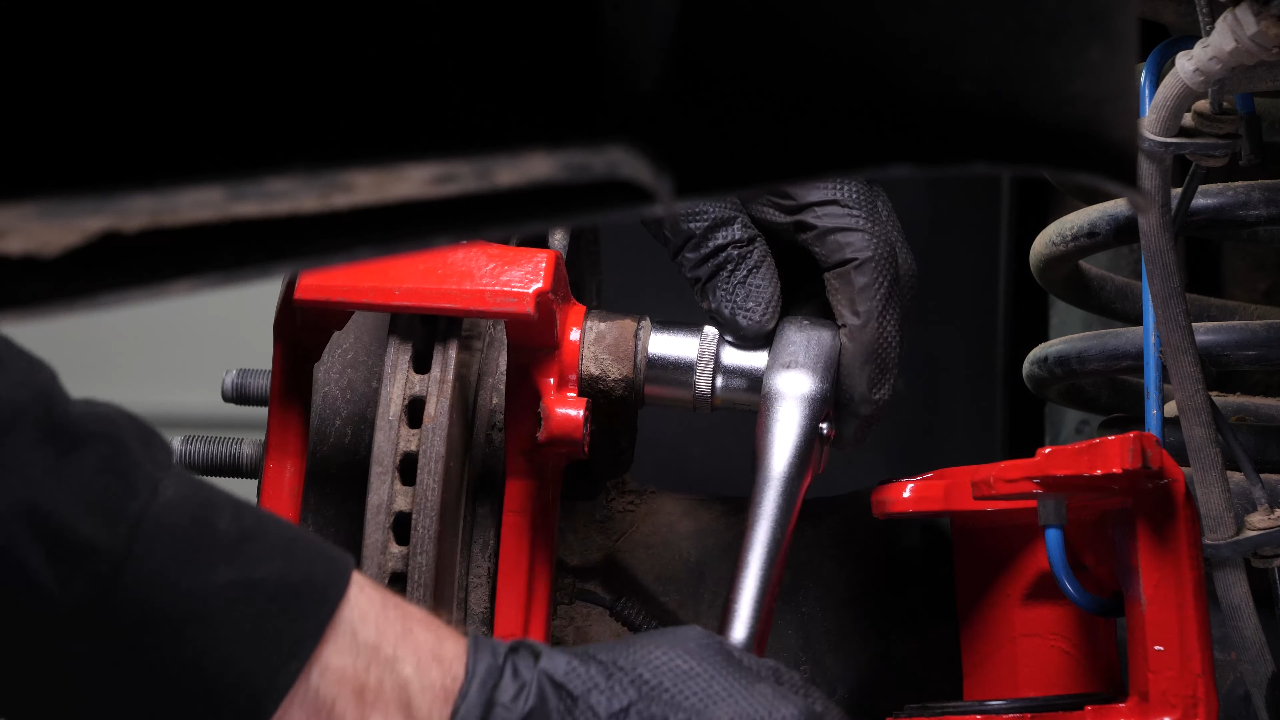

Chapter 8:
Step 2/2
Depending on the state of the nuts on the caliper mount, it may be necessary to use a hammer to loosen them. Remove the caliper mount.
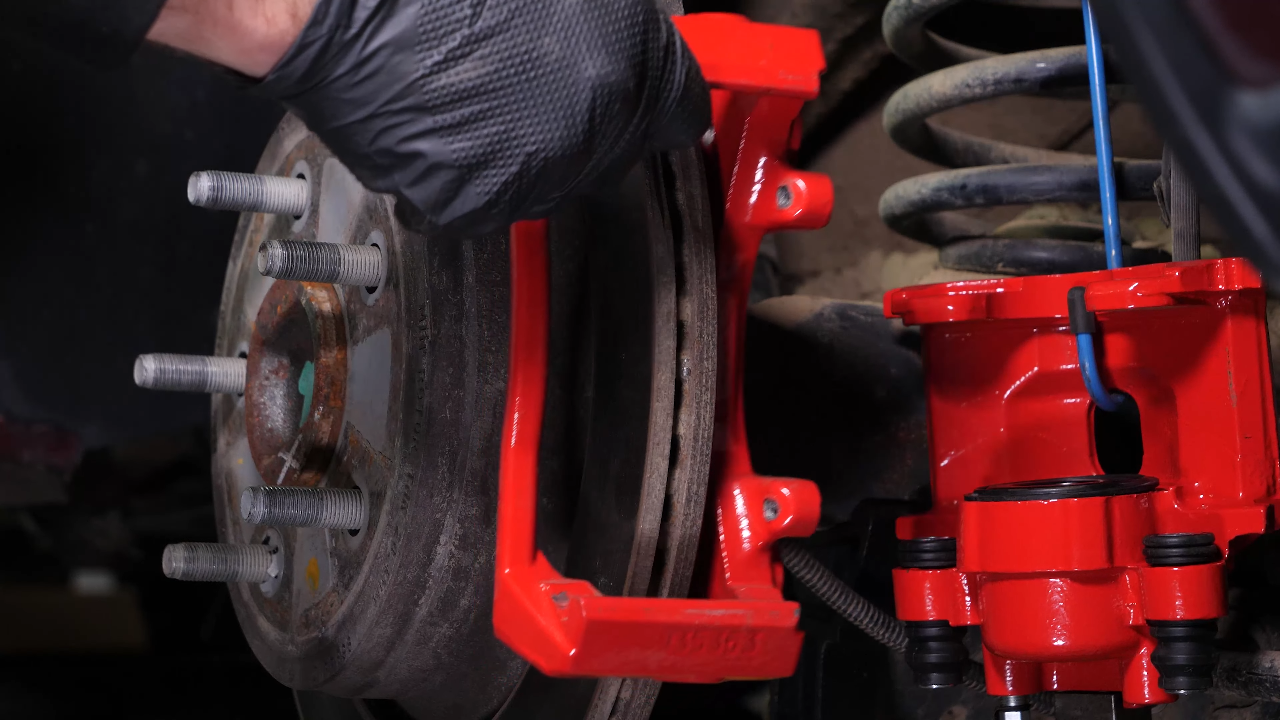

Chapter 9:
Remove the brake disc
Step 1/3
Using a flat head screwdriver, pull the retainer away from the disc so you can unscrew it.
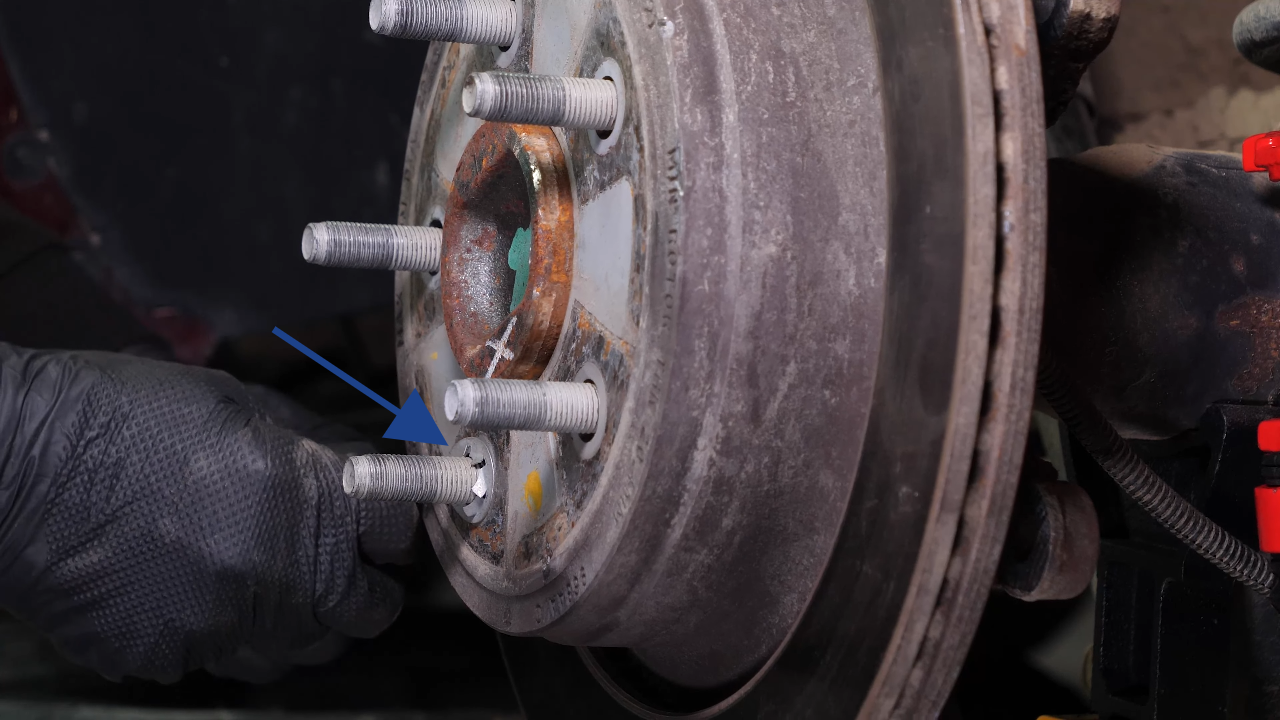
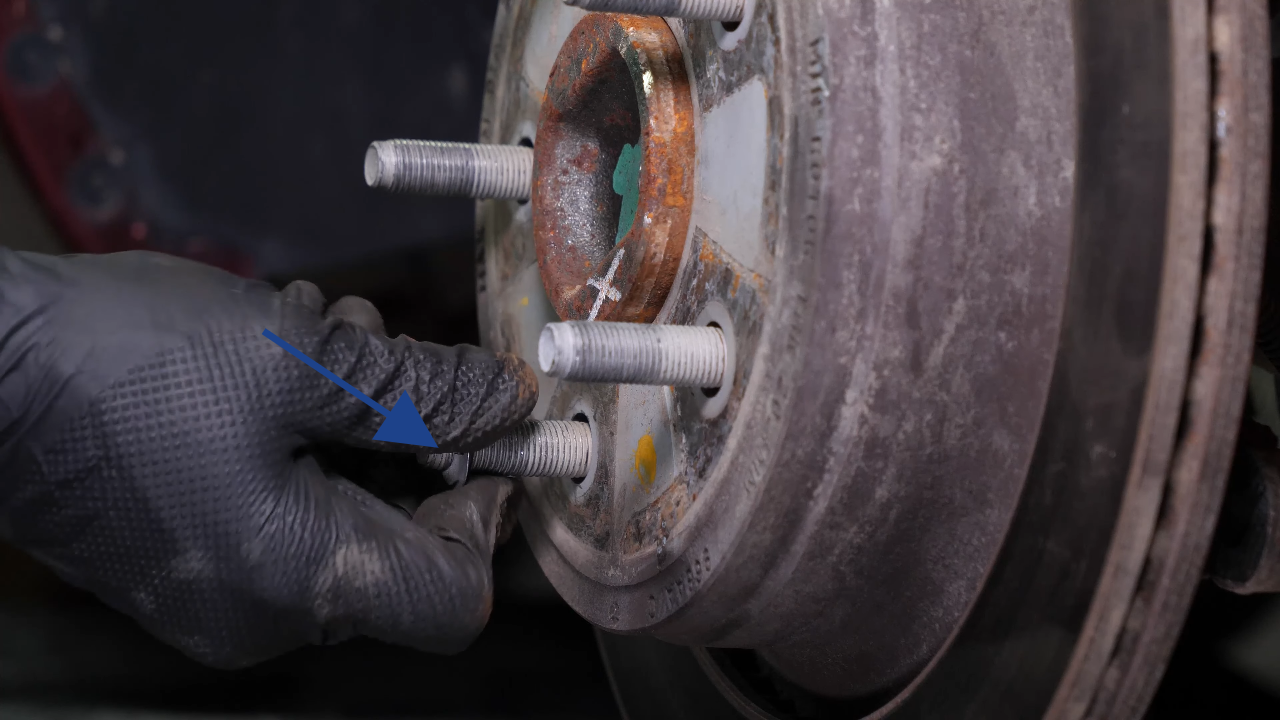
Chapter 9:
Step 2/3
Sometimes the disc may get stuck on the hub, if this happens, use a hammer to remove it. Finally, remove the disc.



Chapter 9:
Step 3/3
Clean the wheel hub with a wire brush.
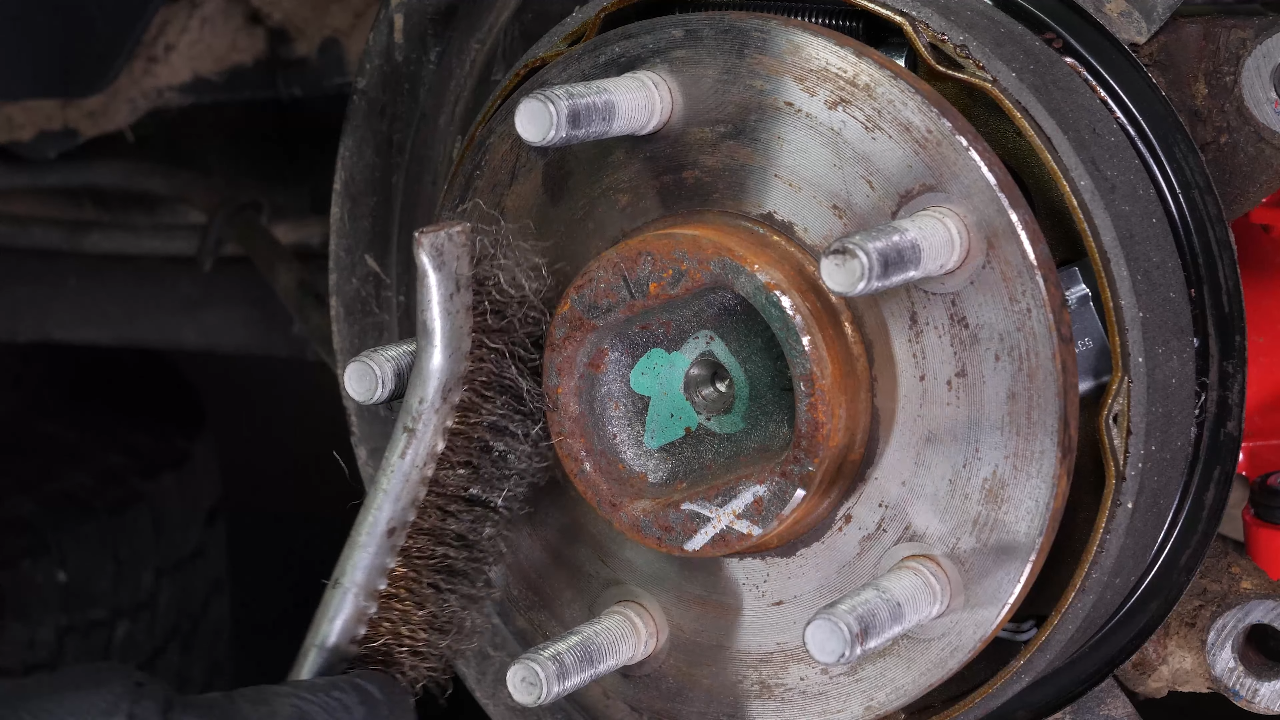
Chapter 10:
Install the new brake disc
Step 1/2
Before installing the new disc, it is vital to clean it using brake cleaner and paper towels to take of the storage paraffin.


Chapter 10:
Step 2/2
If your new disc is coated, you can place it directly onto the wheel hub. Then put the retainer back in place.
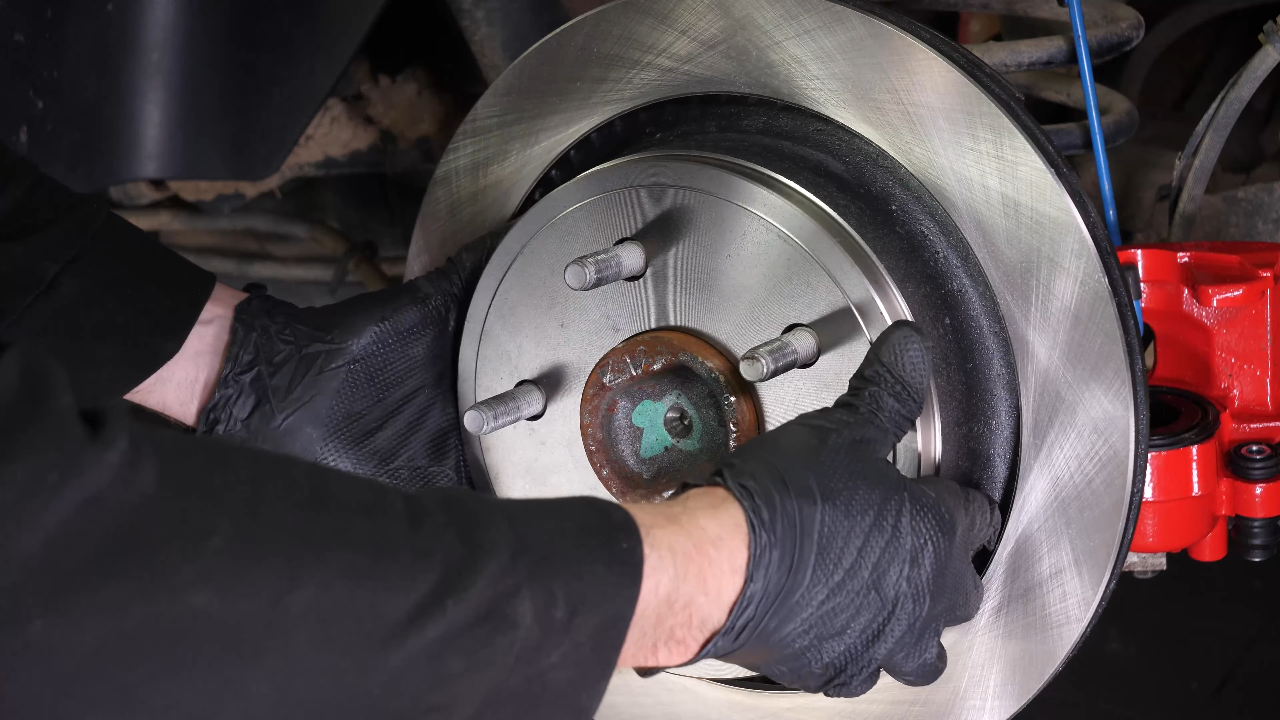


Chapter 11:
Put the brake caliper mount back on
Step 1/2
Brush the caliper mount around the pads to remove any extra rust that could prevent the pads from sliding.

Chapter 11:
Step 2/2
Reassemble the caliper mount by screwing first by hand, then with a socket wrench and a 21mm socket to lock them in place. Finish tightening using a torque wrench.
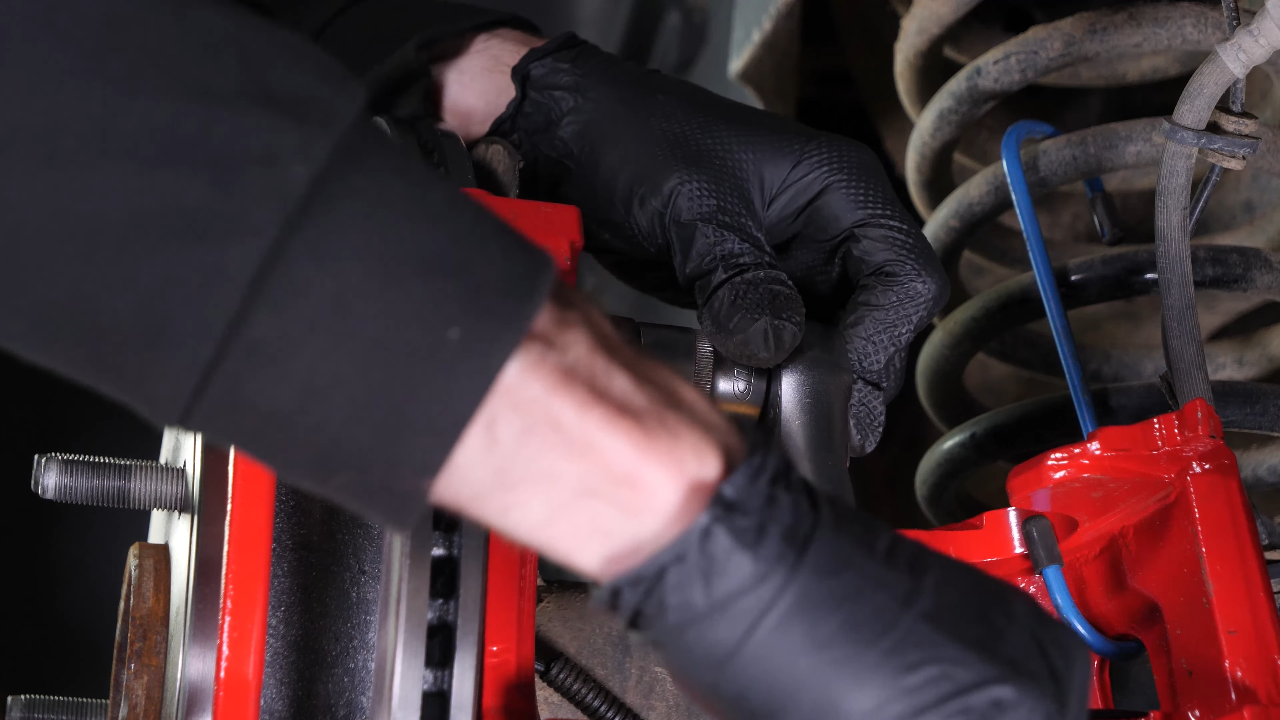
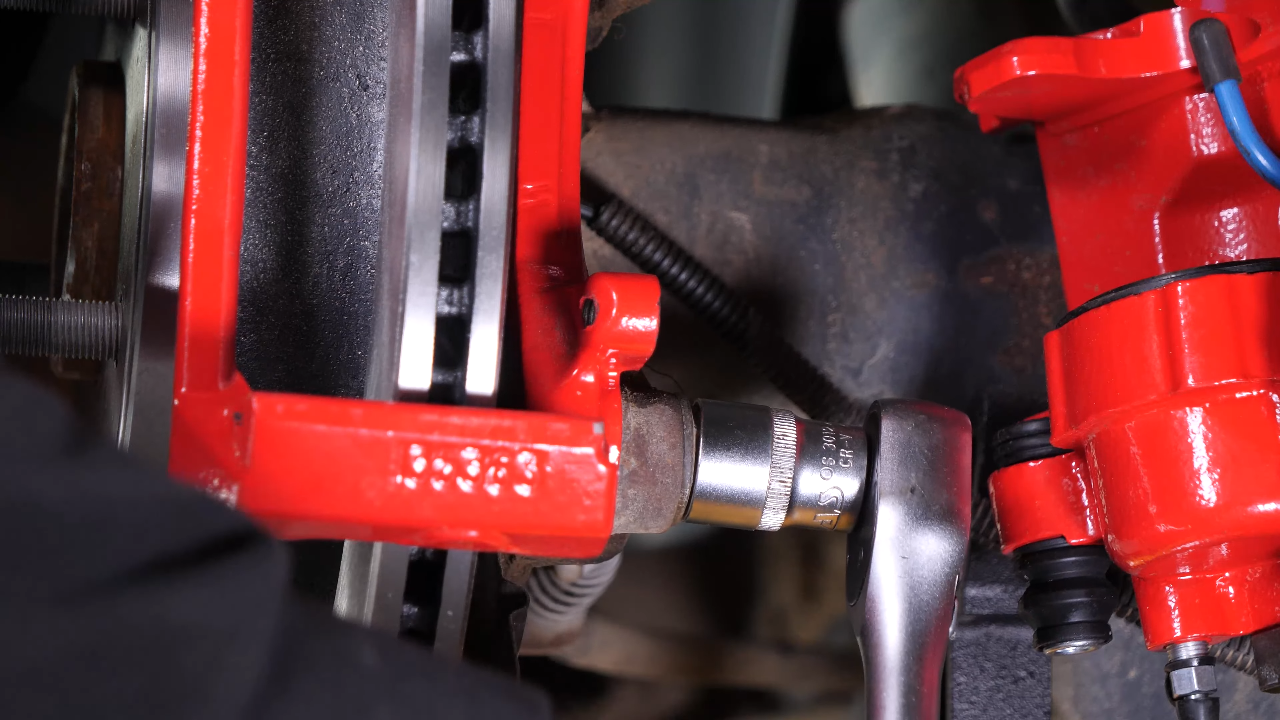

Chapter 12:
Tips
Step 1/2
Carparts.com also recommends replacing the anti-rattle clips with new ones.
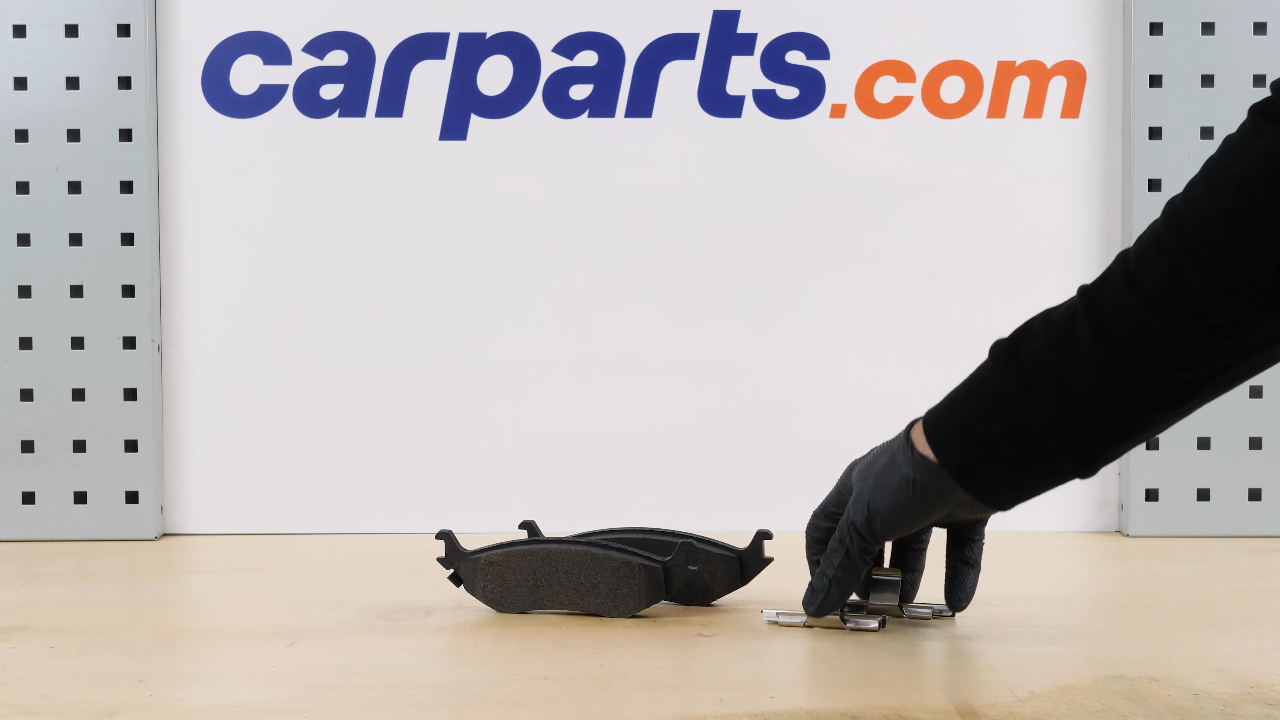
Chapter 12:
Step 2/2
Place the new anti-rattle clips on the caliper mount.
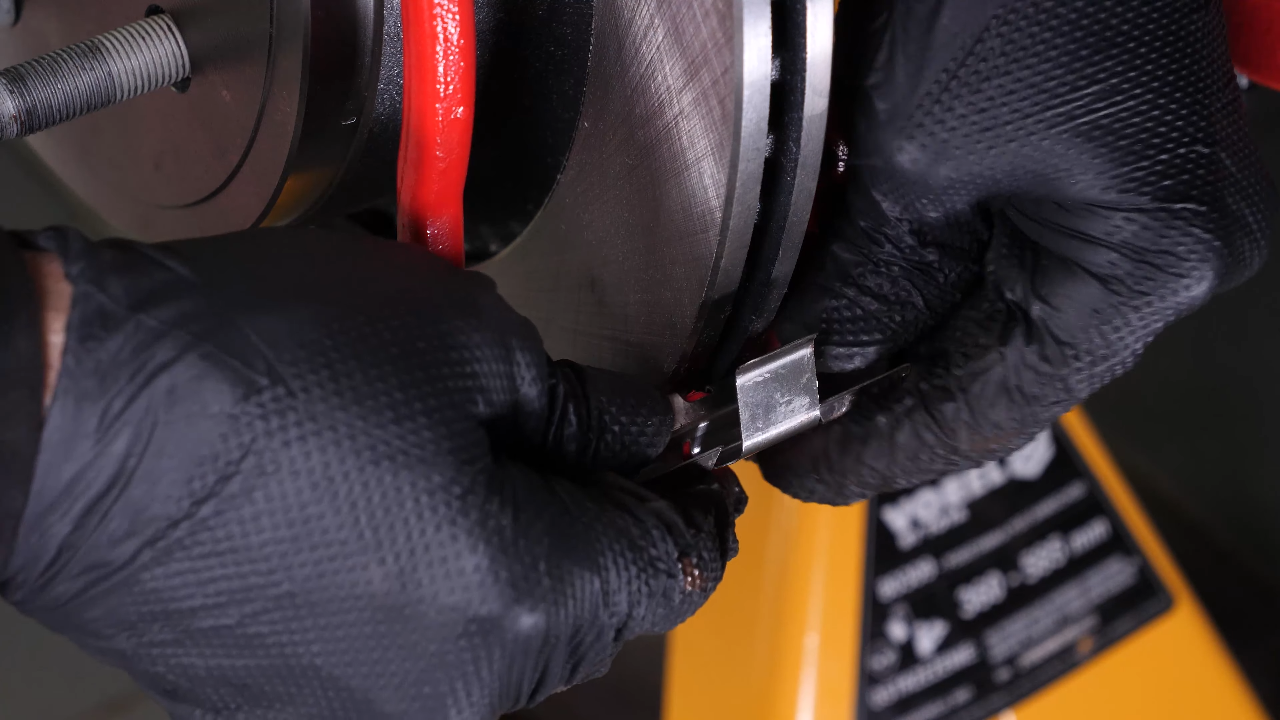

Chapter 13:
Place the new brake pads
Step 1/2
Grab the new pads, and lightly coat the ends with copper grease to help them slide more easily.

Chapter 13:
Step 2/2
Insert the new pads into the caliper mount by sliding them in.

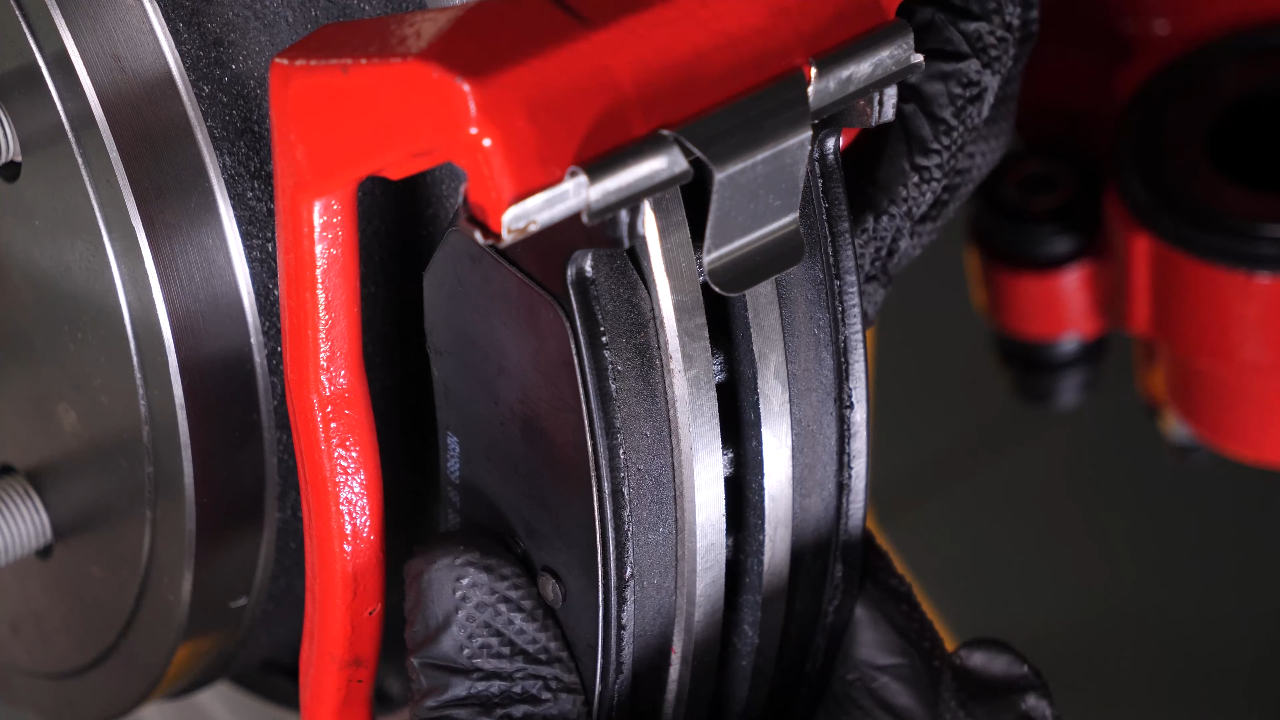
Chapter 14:
Put the brake caliper back
Step 1/2
Grab the brake caliper. Put the brake caliper back in place and screw in the slide pins, by hand at first.
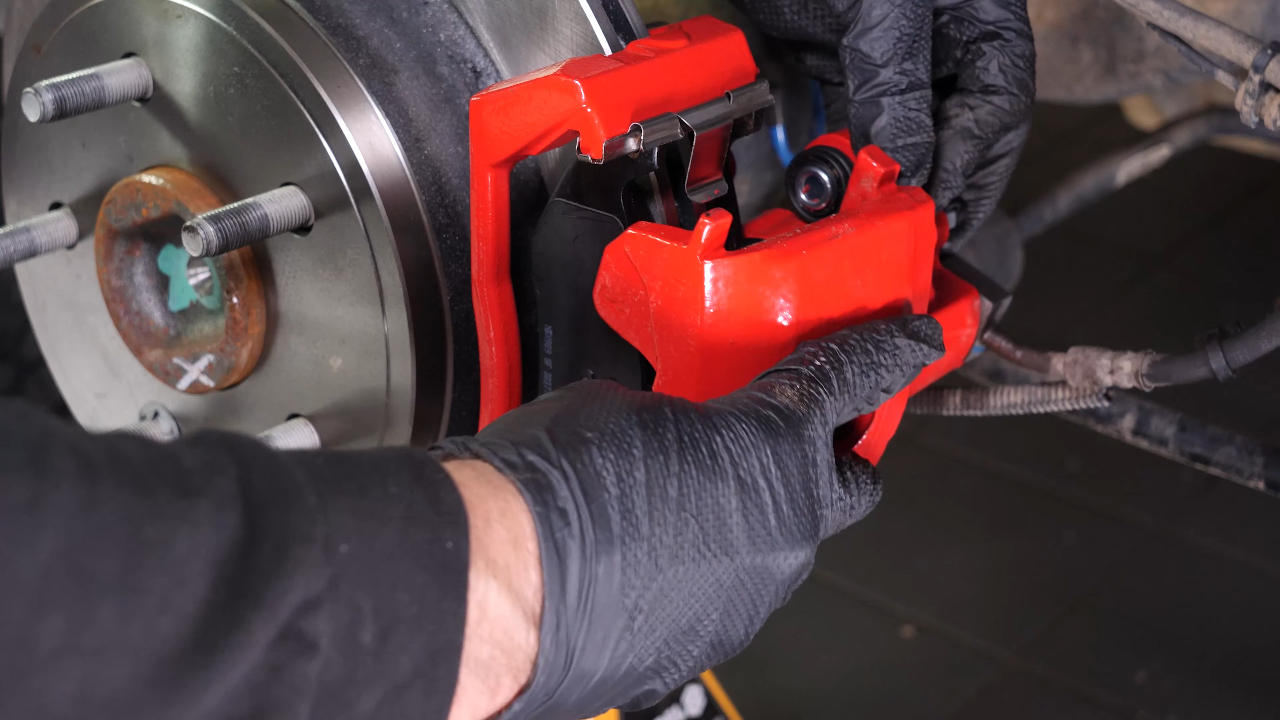

Chapter 14:
Step 2/2
Screw them in using a socket wrench and a 13mm socket. Finish tightening using a torque wrench.


Chapter 15:
Tips
Step 1/1
In case you adjusted the brake shoes to remove the disc, set the mechanism back until there is a slight friction between the brake shoes and the disc.


Chapter 16:
Finalise the reassembly
Step 1/3
Put the shutter cover back on. Clean both sides of the disc with brake cleaner and a cloth to remove the grease from the new pads.

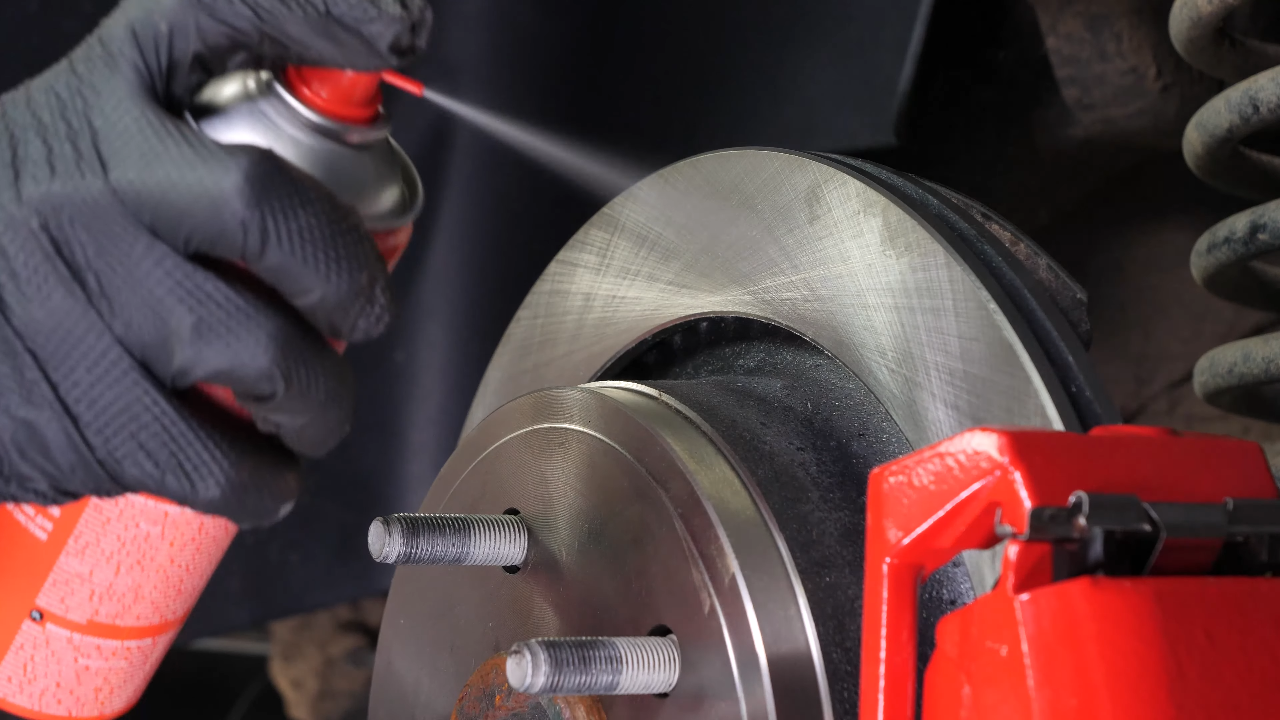
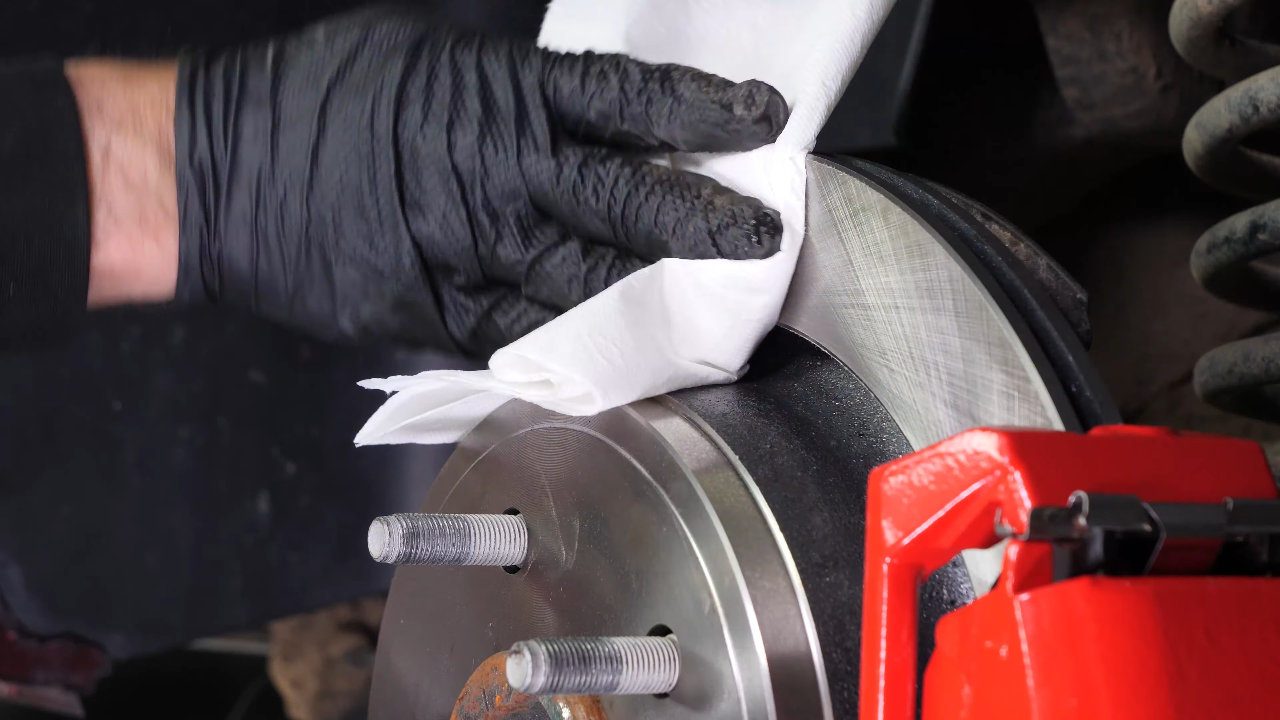
Chapter 16:
Step 2/3
You can now repeat the same process on the other side. Then, you will be able to put the wheels back on your vehicle. Put the car back on the ground and block the wheels properly.
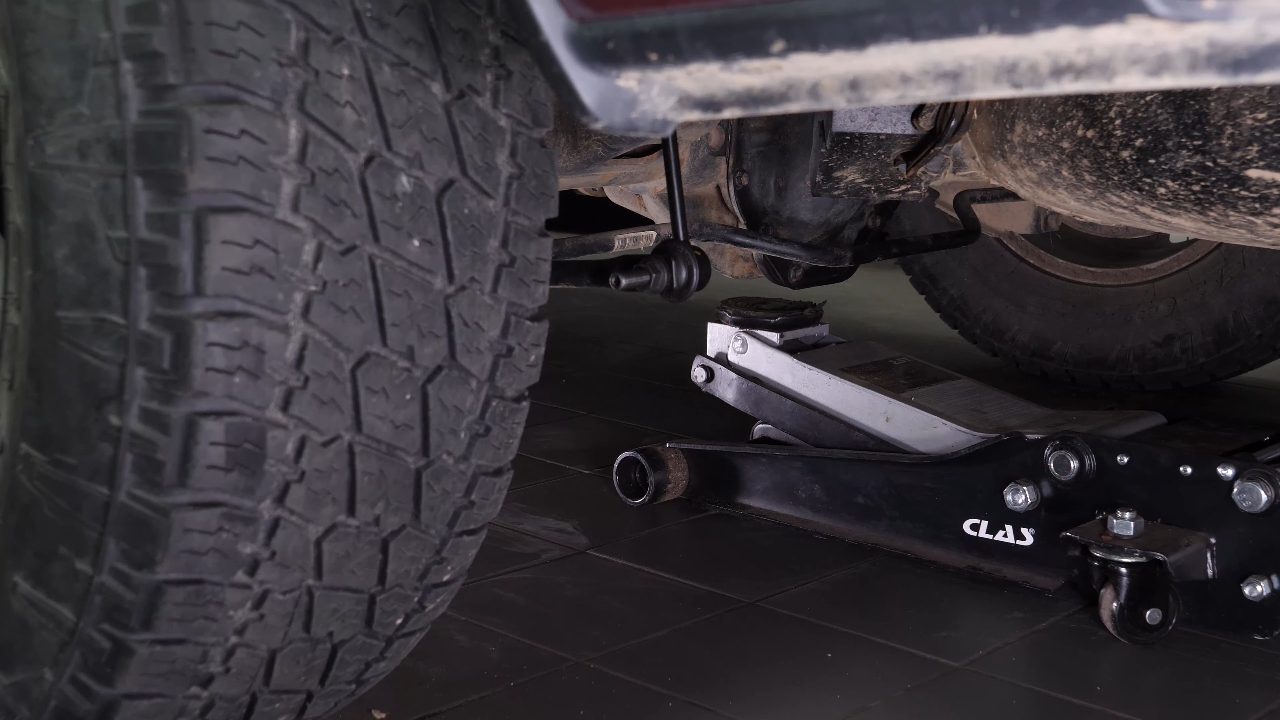

Chapter 16:
Step 3/3
Don’t forget to screw the brake fluid cap back on before starting the car.

Chapter 17:
Safety tips
Step 1/3
Attention! Before using your vehicle again, start your car, and pump the brake pedal a few times to push the brake pads together again.
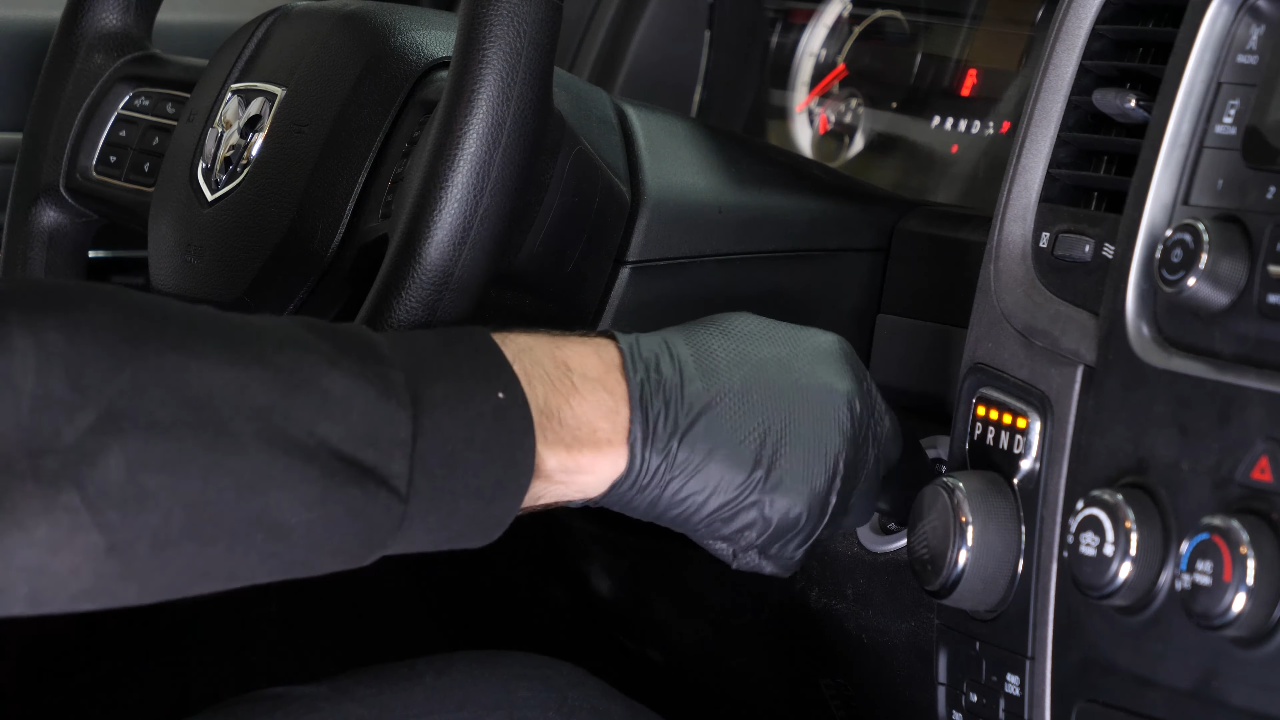
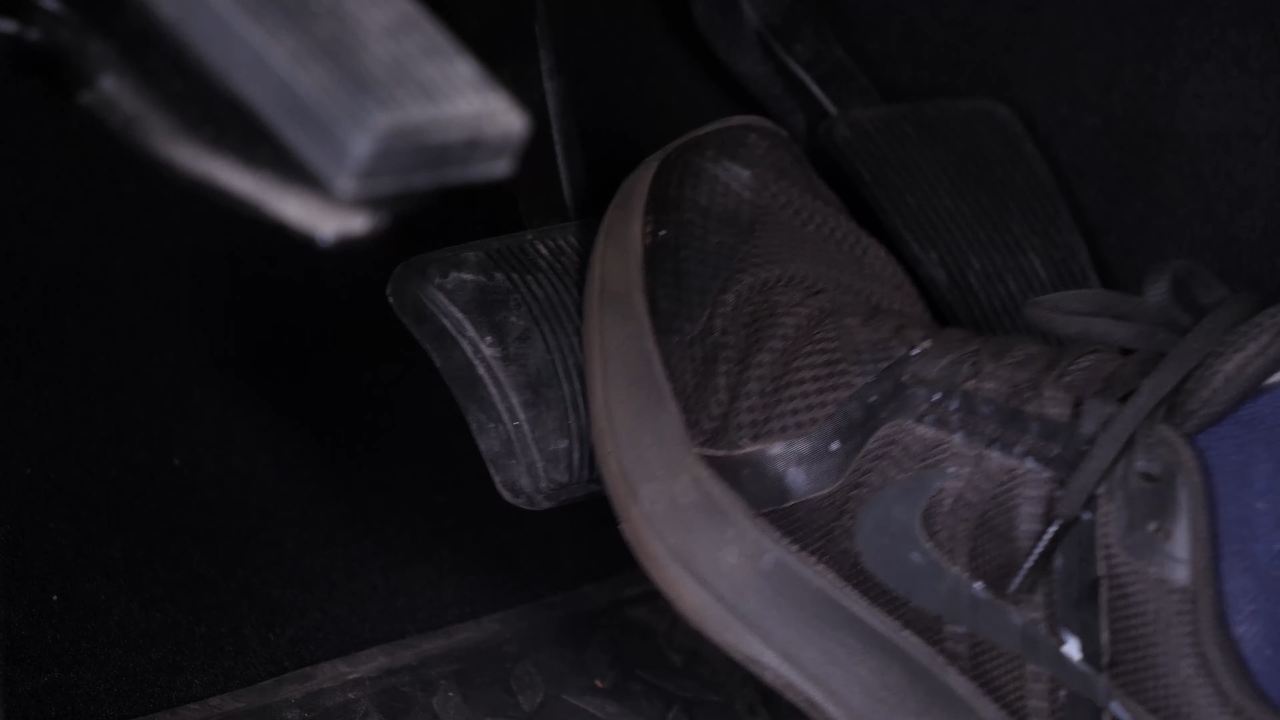
Chapter 17:
Step 2/3
Try to drive smoothly and avoid sudden braking for the first 30 miles or so, to avoid glazing the new pads.
Chapter 17:
Step 3/3
Operation complete.